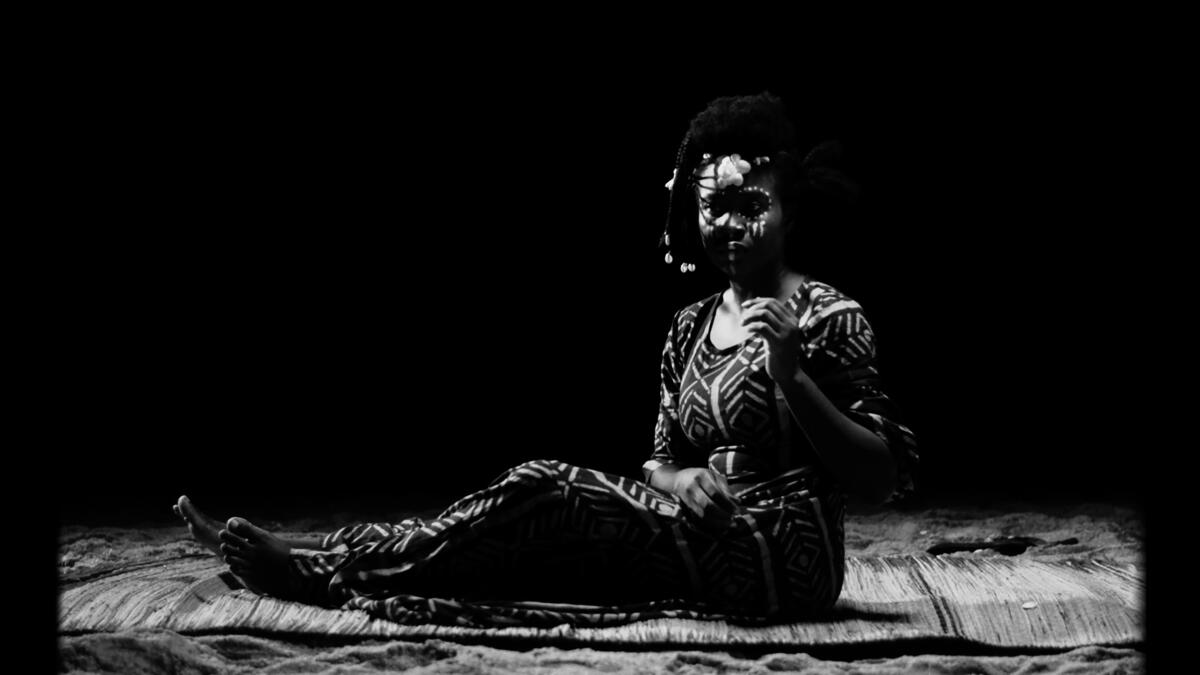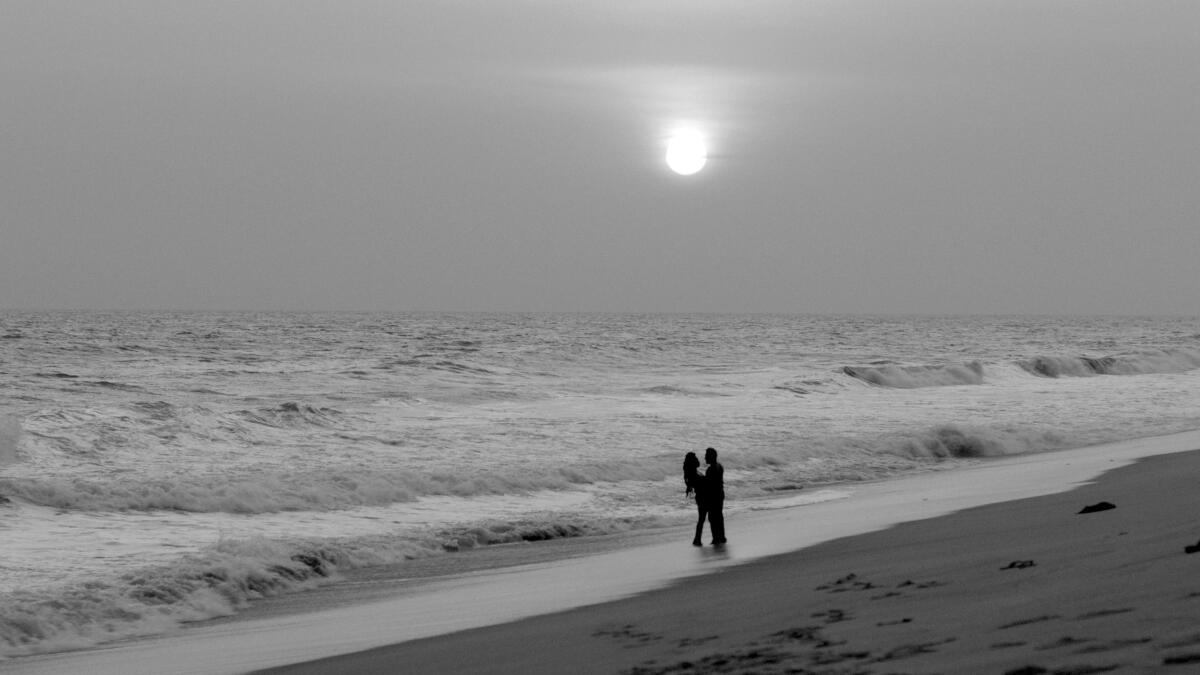‘Mami Wata’ serves up a gorgeously rendered West African fable, tinged with mysticism

- Share via
You don’t need to believe in the generosity of an ancient water deity to be transfixed by Nigerian director C.J. “Fiery” Obasi’s folklore melodrama “Mami Wata.” Respecting the conjuring power of movies is all the devotion that’s required to fall under the spell cast by Obasi’s stark, roiling tale of spirit-world mysteries and all-too-human machinations, filmed in an evocatively dense monochromatic palette.
The title goddess’ cultural relevance to Africans and their diasporas has been dramatized before, most notably last year in Nikyatu Jusu’s New York-set horror story “Nanny,” in which Mami Wata figured in the anxieties of a Senegalese immigrant mother. In Obasi’s narrative, spoken in Pidgin English and set in a fictional West African seaside community called Iyi, Mami Wata’s sway over a struggling people is called into question vocally, then violently.
At first, we’re captivated by the ornately decorative beauty of the Iyi people’s look and dress: elaborate hairstyles, dazzlingly patterned clothing, faces designed with glowingly stippled white paint. That majesty is contrasted, however, by a suspicion that progress has passed this strapped village by. Under grim-faced authority Mama Efe (Rita Edochie) — the anointed intermediary between Mami Wata and the people, who pay tribute with regular contributions of food and money — there are still no hospitals, schools, running water or electricity. When a sick boy gets worse under her priestly ministrations, Mama Efe’s trusted standing becomes even more precarious.
There’s even a split between her grown daughters, who share a fear that something must be done in the face of possible unrest. Rebellious Zinwe (Uzoamaka Aniunoh) still believes in the goddess’ power to make things right, going so far as to attempt a secret power grab of sorts, while doubting Prisca (a magnetic Evelyne Ily), adopted in childhood, is more alive to the realities on the ground, and knows only practical solutions will offset a cratering faith.

Naturally, the sea washes up a possible change agent in the form of handsome, enigmatic Jasper (Emeka Amakeze), a dreadlocked escapee from a war-torn land whom Efe and Prisca nurse back to health. As an attraction develops between this weary stranger and Prisca, he speaks with hard-earned wisdom about the consequences of a society fractured by ideologies. But when Iyi implodes, Jasper’s actions tell a different story, one that threatens the future of Iyi and the lives of the sisters.
It’s easy to be reminded of silent film’s who-needs-words heyday while watching “Mami Wata,” even when the foreboding sound design is doing its part and the actors are delivering their sparely written lines as if their characters’ lives depended on it. That’s because Lílis Soares’ stunning black-and-white cinematography has the power of a dreambook, the pages thick with exquisitely moonlit spaces and sun-chiseled outlines, torchlit skin and textures that look touchable and, in the case of the inky, silvery depths of the ocean, hypnotic. (Soares’ work justly won her a cinematography award this year at Sundance.)
That balance between light and dark is how Obasi most potently underscores all his themes: faith and proof, tradition versus modernity, the otherworldly alongside the human, and of course, Mami Wata’s power to give and take. Though his compositions favor the charged grandeur of the close-up — and given the array of faces he’s cast, it makes sense — he also has a sharp eye for bodies against a landscape, and figures framed by an unforgiving night. Most impressively, perhaps, for someone working in the realm of mysticism but also budget meagerness, he turns the visual motif of a tide rolling in and receding into the simplest and thickest of suggestions that Mami Wata — and by extension, the movie named after her — is a dynamic, ever-present force.
'Mami Wata'
In Pidgin English, with English subtitles
Not rated
Running time: 1 hour, 47 minutes
Playing: Laemmle Royal, West Los Angeles
More to Read
Only good movies
Get the Indie Focus newsletter, Mark Olsen's weekly guide to the world of cinema.
You may occasionally receive promotional content from the Los Angeles Times.










